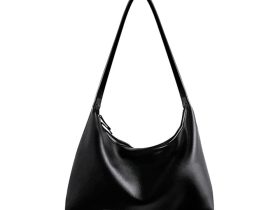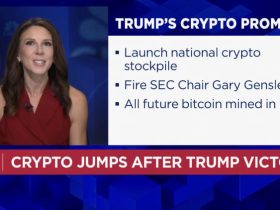
US President-elect Donald Trump’s newest cupboard picks are going through opposition from varied quarters, with a few of his key hires set to bear additional vetting, CNN reported. Whereas most of the Republican chief’s personnel selections are fast, a number of will want Senate approval, which features a listening to and the approval of a majority within the chamber.
Now, Trump is reportedly trying right into a clause within the US Structure that permits a president to make unilateral appointments if the Senate isn’t in session, as per The BBC.
How does Senate vetting work?
Greater than 1,000 positions, together with the Cupboard, ambassadors, and a few lower-level roles, require Senate approval. Nonetheless, a lot of Donald Trump’s staff members, corresponding to these within the White Home or as nationwide safety advisers, don’t want Senate approval however nonetheless undergo a vetting course of, which can contain FBI background checks.
On Thursday, incoming Senate Majority Chief John Thune stated on Fox Information, “None of that is gonna be simple.” The FBI checks nominees for Senate-confirmed roles and different nationwide safety positions however doesn’t present an opinion on the outcomes, leaving that to the president-elect or White Home Counsel. Donald Trump’s transition staff has reportedly bypassed FBI checks for some cupboard picks and is contemplating personal vetting firms.
The Senate approval course of entails submitting monetary disclosure types, finishing role-specific questionnaires, and testifying earlier than a Senate committee. The committee votes on the nomination, and the complete Senate then votes. Cupboard appointments are often accredited rapidly, however political conflicts can result in intense battles and even rejections. With Republicans controlling each chambers of Congress, some disputes could also be much less intense, though issues about nominees like Matt Gaetz for Lawyer Basic have already surfaced.
What are recess appointments?
A recess appointment permits the president to make momentary appointments when Congress isn’t in session. These appointments are often momentary, expiring on the finish of a congressional session. Donald Trump has expressed curiosity in utilizing this energy to bypass Senate approval, however it isn’t assured, as Congress would wish to conform to a recess.
The recess course of was initially meant for emergencies when Congress didn’t meet as ceaselessly because it does now. The aim was to make sure that presidents might fill necessary roles at once.
Donald Trump’s plan to make use of recess appointments and bypass Senate vetting has historic precedent. Former presidents, together with George W. Bush (171 recess appointments), Invoice Clinton (139), and Barack Obama (32), have employed this methodology, usually to bypass political gridlock.
Nonetheless, using recess appointments was curbed after the Supreme Courtroom struck down a number of of Obama’s appointments in 2014, calling them unconstitutional.
When can Trump make recess appointments?
The President-elect could make recess appointments in two methods. First, if the Senate agrees to a recess of 10 days or extra by majority vote. Second, if the Home votes for an extended recess, Trump might use a uncommon constitutional energy to adjourn each chambers of Congress.
Nonetheless, Trump can’t make these appointments till after his inauguration on January 20. This energy has by no means been used earlier than, and it is unclear how it will play out. Trump would wish unanimous consent from all 100 senators to pressure a recess longer than 10 days, which is difficult provided that Democrats maintain 47 seats. To override opposition, Republicans would wish not less than seven Democratic votes or a change to the filibuster, which Senate Majority Chief John Thune has opposed.
Donald Trump’s Cupboard picks thus far
-
Secretary of State: Marco Rubio
-
Lawyer Basic: Matt Gaetz
-
Director of Nationwide Intelligence: Tulsi Gabbard
-
Secretary of Protection: Pete Hegseth
-
Secretary of Homeland Safety: Kristi Noem
-
CIA Director: John Ratcliffe
-
Secretary of Well being and Human Companies: Robert F. Kennedy Jr.
-
Secretary of Veterans Affairs: Doug Collins
-
EPA Administrator: Lee Zeldin
White Home workers
-
Chief of Employees: Susie Wiles
-
Border Czar: Tom Homan
-
Deputy Chief of Employees for Coverage: Stephen Miller
-
Deputy Chief of Employees: Dan Scavino
-
Deputy Chief of Employees: James Blair
-
Deputy Chief of Employees: Taylor Budowich
-
White Home Counsel: William McGinley
-
Particular Envoy to the Center East: Steven Witkoff
-
Ambassador to Israel: Mike Huckabee
-
Ambassador to the United Nations: Elise Stefanik
-
Press Secretary: Karoline Leavitt







